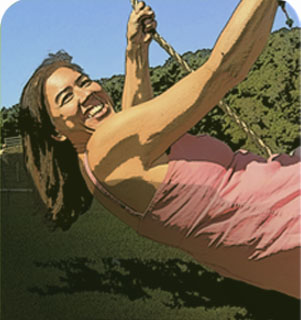Agmurmuray ka pay

My mom used to say to me, “some things just can’t be translated.” I would hear her mutter something when perplexed – and irritated – over a phrase while working as an editor or in trying to explain her experience in everyday life. Perhaps she was distracting me from words that were not appropriate for a child, but later in life, she added on to the phrase to say, “some things can’t be translated but experienced.”
The practices of self-care and mindfulness are a bit like this, each person has to translate it into their own experience.
Why even care about these practices? Stress related illnesses are the number one reason people see a health care provider in the US. Mindfulness has been shown repeatedly to reduce anxiety and depression, and symptoms related to heart disease. As Filipinos, it is crucial that we practice our own unique form of mindfulness, a non judgmental moment to moment awareness, one shaped by our traditions and consciousness of our past, and supported by somatic awareness.
Last year in Alaska, I was asked by members of different Indigenous nations, “Who is your tribe?’. This question and subsequent conversations elicited a deep connection between the askee and me. I was aware of a type of starving that had been driving me my entire life until I connected with them. I felt deeply “seen” and “fed”. As I processed all of it, I started to understand that the starving came from an unseen and unconscious wound, the wound that starts with microaggressions that occur living as a woman of color, in a biracial family in the United States from the 1960s’ until now. The wound became deeper and wider from childhood to adulthood as those microaggressions became lumped in with other forms of aggression into a hypervigilance to monitor my world for safety at all times.
When I returned from my journey, I reflected on our Filipino culture. We are a joyful bunch, accommodating and gracious, hospitable and humble, with a wisdom in knowing there is something larger than our individuality. These collective traits perhaps developed as a survival, saving us from the horror and tragedies of slavery and colonialism forced upon our culture for hundreds of years.
All together our history is compelling, running deep within our cells. We have lived with racism, corruption, and extraordinary violence because we had to, and these conditions still are felt albeit more subtly, unsaid and for many, unconscious. We have responded by serving in health care and in the U.S. military in high numbers. We have also collectively glossed over these unsaid things, perhaps in an attempt to accommodate, to “stay in our joy”. Yet in doing this, a great spiritual bypass has occurred. I believe this bypass has translated into an epigenetic disease process that is now here in epidemic proportions, the number one killer of Filipinos and Filipino Americans: heart disease.
We have a saying in the physical medicine world: “the issues lie in the tissues”. Those unconscious and unaware places that reside in our consciousness exist not only from this present life but from those that have come before. One only has to look at behavior patterns in one family to see how they exist over generations. Taken one step further into the more than 175 Indigenous Nations in the Philippines who have been separated from their traditions and ways of connecting, it is entirely possible that an underlying chronicity of stress adds to the predisposition to heart disease.
As a healer for several decades, I have come to understand that our healing is not just diet, exercise and a lifestyle journey, but a journey of the soul and the expression of the sacred that lives through our every breath and movement. That is our Filipino mindfulness.
Jon Melegrito says, “When we start to unlearn what our colonizers did to us, we begin to appreciate the Ilocano words like “agmurmuray” – a kind of mindfulness and self care. My mother always reminded me when I was growing up: “Agmurmuray ka pay anak.” Don’t rush out of bed, son. Be still for a moment and slowly absorb the world around you. Take your time.”
When I read this, my mother’s words came rushing back to me, “some things can’t be translated but experienced.” Consciousness arose in me because of my practice of mindfulness and inquiry. I worked hard to make my emotional experience valuable, and not because anyone told me it was, it just was. I had to transcend the idea that self care was narcissistic and selfish. And I learned to do the following: train my breathing, sense my body, follow the rhythms of the sun/moon, pause to pray and have gratitude, and to connect with like minded souls. Scheduling these times also worked, 1 hour is only 4% of the total day lived.
These practices are Agmurmuray, our culture’s form of mindfulness and self care. All of what saved us, generosity, hospitality, our wisdom can continue to save us, arising moment by moment, but only if we include our individual hearts into that circle and embrace all of what we are. Translation? Your experience matters. All roads past converging to this moment.
March edition of the Manila Mail, 2020
